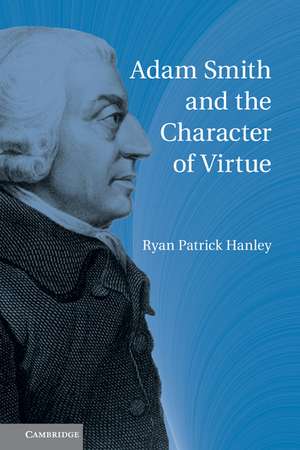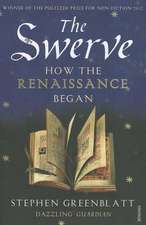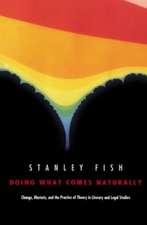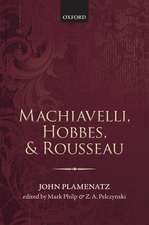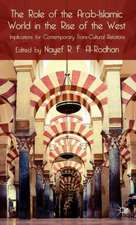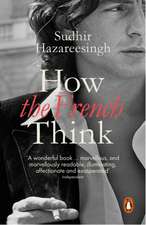Adam Smith and the Character of Virtue
Autor Ryan Patrick Hanleyen Limba Engleză Paperback – 30 ian 2011
| Toate formatele și edițiile | Preț | Express |
|---|---|---|
| Paperback (1) | 283.79 lei 6-8 săpt. | |
| Cambridge University Press – 30 ian 2011 | 283.79 lei 6-8 săpt. | |
| Hardback (1) | 692.50 lei 6-8 săpt. | |
| Cambridge University Press – 21 iun 2009 | 692.50 lei 6-8 săpt. |
Preț: 283.79 lei
Nou
Puncte Express: 426
Preț estimativ în valută:
54.31€ • 56.11$ • 45.17£
54.31€ • 56.11$ • 45.17£
Carte tipărită la comandă
Livrare economică 20 martie-03 aprilie
Preluare comenzi: 021 569.72.76
Specificații
ISBN-13: 9780521188234
ISBN-10: 0521188237
Pagini: 242
Dimensiuni: 152 x 229 x 14 mm
Greutate: 0.36 kg
Editura: Cambridge University Press
Colecția Cambridge University Press
Locul publicării:New York, United States
ISBN-10: 0521188237
Pagini: 242
Dimensiuni: 152 x 229 x 14 mm
Greutate: 0.36 kg
Editura: Cambridge University Press
Colecția Cambridge University Press
Locul publicării:New York, United States
Cuprins
Introduction; 1. The problem: commerce and corruption; 2. The solution: moral philosophy; 3. Interlude: the what and the how of TMS VI; 4. Prudence, or commercial virtue; 5. Magnanimity, or classical virtue; 6. Beneficence, or Christian virtue; Epilogue.
Recenzii
Reviews of the hardback: 'Ryan Patrick Hanley's excellent Adam Smith and the Character of Virtue succeeds in bringing a fresh perspective to the study of Smith's works. It offers a brilliant reinterpretation of Smith's moral philosophy that not only unifies Smith's work but offers larger lessons for us today. In an increasingly crowded field, Adam Smith and the Character of Virtue distinguishes itself as one of the most important books on Smith in more than a decade.' James Otteson, Yeshiva University
'An original view of Adam Smith, arguing that he goes beyond self-interest and sympathy to the nobility of classical virtue. Ryan Hanley shows calm intelligence, fairness, and accuracy in this impressive new interpretation.' Harvey Mansfield, Professor of Government, Harvard University
'The great originality of Ryan Hanley's book is twofold: first it exhibits Smith's pervasive, surprising, and previously ignored focus on 'nobility.' Even more surprising is that Hanley is persuasive in explaining how in deploying this concept, Smith attempts to merge Christian and Pagan virtues appropriate to commercial times. Second it shows that Smith offers his readers a program of self-actualization that can transform their various manifestations of self-love into socially beneficial activities. In the process, Hanley puts to rest the idea that Smith was sanguine in relying on market forces or the invisible hand alone. Moreover, Hanley shows how Smith capitalized on humanity's religious longings. Hanley wisely avoids the question about Smith's religious views and focuses on Smith's treatment of the role(s) of religion in commercial society. By letting Smith regularly engage with Aristotle, Rousseau, and Tocqueville, Hanley makes Smith seem like a helpful and instructive companion in a world where the victory of Liberalism and Enlightenment are not to be taken for granted. Along the way, Hanley articulates a detailed account of Smith's intellectual development over time.' Eric Schliesser, Leiden University, editor of New Voices on Adam Smith
'An original view of Adam Smith, arguing that he goes beyond self-interest and sympathy to the nobility of classical virtue. Ryan Hanley shows calm intelligence, fairness, and accuracy in this impressive new interpretation.' Harvey Mansfield, Professor of Government, Harvard University
'The great originality of Ryan Hanley's book is twofold: first it exhibits Smith's pervasive, surprising, and previously ignored focus on 'nobility.' Even more surprising is that Hanley is persuasive in explaining how in deploying this concept, Smith attempts to merge Christian and Pagan virtues appropriate to commercial times. Second it shows that Smith offers his readers a program of self-actualization that can transform their various manifestations of self-love into socially beneficial activities. In the process, Hanley puts to rest the idea that Smith was sanguine in relying on market forces or the invisible hand alone. Moreover, Hanley shows how Smith capitalized on humanity's religious longings. Hanley wisely avoids the question about Smith's religious views and focuses on Smith's treatment of the role(s) of religion in commercial society. By letting Smith regularly engage with Aristotle, Rousseau, and Tocqueville, Hanley makes Smith seem like a helpful and instructive companion in a world where the victory of Liberalism and Enlightenment are not to be taken for granted. Along the way, Hanley articulates a detailed account of Smith's intellectual development over time.' Eric Schliesser, Leiden University, editor of New Voices on Adam Smith
Notă biografică
Descriere
This book revisits the moral and political philosophy of Adam Smith to recover his understanding of morality in a market age.
